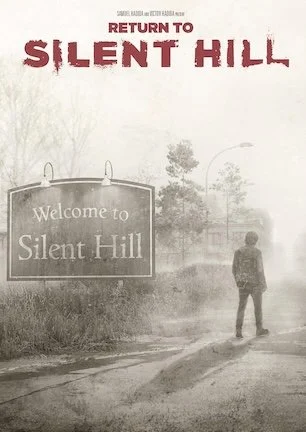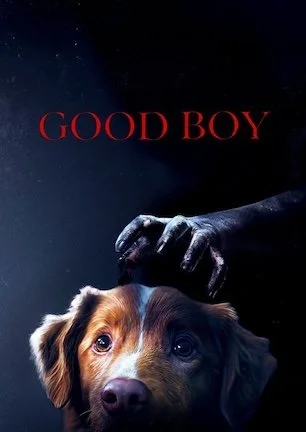Studio: XLrator Media
Director: Sean Stone
Writer: Sean Stone, Alexander Wraith
Producer: Giulia Prenna, Kaila York
Stars: Sean Stone, Alexander Wraith, Antonella Lentini, John Schramm, Monique Zordan, Monique Van Vooren, Oliver Stone
Review Score:
Summary:
Three young filmmakers investigate the abandoned and reportedly haunted Greystone Park Psychiatric Hospital in October 2009.
Review:
“Greystone Park,” also known as “The Asylum Tapes” depending on which edition of the DVD is at hand, is a “found footage” feature directed and co-written by Sean Stone. Sean and his friends Alex and Antonella are gearing up for a trip to the Kirkbride building of the abandoned Greystone Park Psychiatric Hospital in New Jersey. Reportedly haunted, the asylum is an opportune place to bring a camera and do some ghost hunting.
Even the box art for "found footage" films is starting to look the same.
The film warms up with some after dinner conversation between family and friends sharing a hookah pipe over candlelight. The guests trade some not particularly frightening ghost stories about Shadow People, a leg pulled while sleeping, and a man in a window who disappears. Sean’s filmmaker father Oliver chimes in with a tame tale from his own campfire days as a young boy. The legend of “Crazy Kate” started when several campers were discovered missing their heads one morning. Oliver’s personal experience with “Crazy Kate” was far less gruesome however, and only involved seeing a woman with a lifeless face and green eyes.
Looking back on this dinner scene, it becomes clear that either something besides tobacco was in that hookah pipe, or the audience is expected to have puffed on a water pipe of its own. Otherwise, there is no way to explain the confusion that follows from frame one until the end credits roll.
“Greystone Park” opens with a jump cut montage of stock footage clips showcasing various mental patients, shock treatments, and other asylum-related imagery. The presumed intent is to be disorienting and foreboding. But since the movie claims to be “found footage” of three filmmakers who went missing inside an abandoned asylum, one can only wonder who it was that decided to enhance “authentic” footage with a few MTV-style editing techniques.
Once the opening credits conclude, a graphic displays the words “two weeks ago,” and the film proceeds to show a previous Greystone Park excursion culminating in another jarring montage and some fevered running by the folks with the camera. Those same people (Alex and John) are then shown 10 seconds later after an abrupt cut to the dinner scene mentioned earlier. Time stamps appear nowhere else in the movie and it is unclear why it was important to know that sequence was two weeks ago. The film is not yet three minutes old and it is already muddled.
The barrage of bewilderment continues on multiple fronts. The first battle is fought between the viewer’s eyeballs and the visual imagery. The movie is so dark and the camera is handled so haphazardly that it is a constant struggle to make out much of what is happening. Characters regularly jump at shadows and images that are either offscreen or completely unlit when they are onscreen. Several electricians are listed in the credits, but their call sheets must have accidentally directed them to a different location. At least, that is the only possible explanation for where the lights actually went.
"Greystone Park" features entire sequences where images like the above are all that can be seen.
The war is just as hard fought on the frontlines of the story. The mythology of Greystone Park is a mish mash of Greek folklore, devil worshipping rituals, a former patient named Billy Lasher, and “Crazy Kate,” who even makes an appearance before the film’s end. Why the ghost from Oliver Stone’s unrelated summer camp youth would be haunting this asylum is a riddle that remains unsolved.
On the other hand, Billy Lasher does fit into the asylum’s backstory, yet his presence is just as quizzical. Billy was a mistreated inmate whose ghost still wears the chains of his confinement and the gasmask from a devastating fire. When he finally appears, he proceeds to beat Sean unconscious with his bare hands. Sean seemingly recovers, though. Because the next time we see Sean, he is busy arguing with Alex, never even mentioning the six-foot tall gasmasked man in chains that nearly beat him to death mere moments earlier. And that is not even the strangest metamorphosis for Sean. After running for his life during the climax, Sean is next seen leaning coolly against a wall wearing a fedora. With hands thrust in his peacoat pockets, he tilts his head up just enough to look into the camera before walking down a dark hallway. The implication is that perhaps he became a shadow man, or he was just on his way to a noir festival. Either possibility is plausible in the logic of “Greystone Park.”
“Found footage” is popular for filmmakers because it allows smaller crews and smaller budgets. Yet I counted over 120 names of below-the-line production and post-production crewmembers listed in the end credits. IMDB also estimates the budget at $550,000. Assuming both of those numbers are accurate, half a million dollars and over 100 people were used to make a movie with three principal actors, two lights, and one handheld video camera. Reconciling the two sides of that equals sign would give Fibonacci a migraine.
With two writers and four credited script supervisors, the film was evidently working with a story. It seems that story was just as murky and as loosely assembled as the footage telling the tale. Compound it with a perplexing narrative and poor cinematography (“poor” being an understatement, and “cinematography” being an overstatement), and “Greystone Park” makes for a less than compelling “found footage” movie about twenty-somethings trapped in a haunted asylum.
Review Score: 25






While the 110-minute runtime could use a trim to maintain more energy, “Redux Redux” is an easy recommend for anyone who enjoys low-key sci-fi.